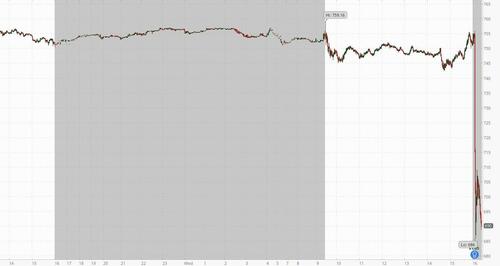The Revenge of the White Van Man

First Italy, now South America. Populism is awake, and it sounds like common sense. From Milei in Buenos Aires to Meloni in Rome and Independents in Basingstoke, the revenge of the ordinary working man and woman, long sneered at by the metropolitan elite, is in full swing.
In Buenos Aires, Javier Milei’s alliance has just cemented control of Congress with roughly 40% of the vote after delivering Argentina’s first budget surplus in 14 years. Inflation, once galloping toward 300%, is finally falling. The peso is stabilising. Exports are hitting record highs. For the first time in a generation, Argentina smells less like crisis and more like competence.
The same scent is drifting across the continent. In Bolivia, voters have broken nearly two decades of socialist rule, weary of slogans that never fed a family. In Chile, conservatives have retaken the constitutional council from the ideologues who tried to turn it into a UN manifesto.
They follow Italy’s lead, where Giorgia Meloni has committed the greatest heresy in modern politics. Competence. She’s run a Right-wing government that listens to its people and survives the Left’s ritual incantation of ‘fascist!’ – the last cry of a movement that’s run out of ideas.
But across Europe, the same message carries a sharper edge. South America’s populists inherited broken economies. Europe’s are battling something deeper: cultural dislocation. In Italy and Greece, mass immigration has tested the limits of infrastructure, identity and patience. Meloni listened, and the people responded. Even Brussels, once drunk on its own moral virtue, is sobering up to the reality that its open-border utopia has become a clear and present danger to the Enlightenment values it claims to defend.
We’ve seen this play before. Weimar Germany, terrified of another Kaiser, replaced authority with administration. In its zeal to avoid autocracy, it built a technocracy: a government of academics, lawyers and bureaucrats who thought process could replace principle. They smothered initiative, mocked patriotism and buried the nation in paperwork. And in that sterile soil a demagogue found oxygen.
A century later, Starmer, Corbyn, Polanski and Davey are auditioning for a sequel. A coalition of clerks and socialists mistaking management for leadership and morality for policy. They would rather regulate the human spirit than trust it. But history’s warning is clear: when a nation’s soul is buried under spreadsheets and moral posturing, something uglier eventually digs its way out.
This is not the rise of fascism, nor the death of democracy. It is democracy rediscovering itself. Farage is not Hitler, not even Trump. Badenoch is certainly no Boadicea. Call it the revolt of the practical classes: the people who pay the bills, fix the boilers, drive the white vans and still believe that you should cut your cloth according to your wallet. They don’t hate the planet, but they know a carbon tax won’t save it. They don’t hate foreigners, but they resent being told that borders are immoral. They don’t hate the poor, but they know work must pay more than welfare. They don’t hate education, but they know indoctrination when they see it.
The lesson seems lost on Gen X, Gen Z and the professors who raised them on the tyranny of virtue. That the state can’t subsidise its way to prosperity. Nor can it browbeat us into believing that feelings build economies and outrage pays the bills. It doesn’t. That’s why the woke run departments, not businesses – and when businesses go woke, they go broke.
Ask the Scots and the Welsh how socialism and DEI is working out. Their economies are shrinking, their services failing and their governments still blaming Westminster for problems of their own making.
For decades the managerial Left has treated these instincts as backward. In Britain the phrase ‘white van man’ became shorthand for the knuckle-dragging, flag waving, tabloid-reading class too thick to understand what was good for them. Yet across continents, these men and women of every creed and colour are showing that they understand the economy better than the people who run it. Because they live in it.
When the elites talk about ‘diversity and inclusion’, the people hear division and intrusion. When they promise ‘equity’, they see competence replaced by compliance. They don’t want managed equality; they want earned opportunity. They want unity through shared culture, not fragmentation through grievance. They believe that patriotism is a virtue, not a sin. That an Englishman’s home really is his castle, not a line in a housing-policy white paper.
This is why populism, properly defined as ‘people not party or politics’, is as popular in Buenos Aires and Bolivia as it is in Basingstoke, where a coalition led by Independents governs. It speaks to the quiet dignity of work, the pride of self-reliance and the freedom to live without perpetual supervision by experts who think they know better and answer to the political class, not the working class.
Milei understands that. He ran on a message so simple that even bureaucrats and economists could understand it. Stop spending money you don’t have. His ‘chainsaw economics’, as his critics called it, cut deep, yet Argentina’s markets responded with relief and investment began to flow back.
Italy’s Meloni did something similar. She trimmed bureaucracy, defended borders and told Brussels she would not let migrants define her nation’s future. Her reward? Italy’s GDP outperformed both France and Germany last year.
Chile’s conservatives took back the constitution from the ideologues who tried to turn it into a UN utopia. Bolivia’s centrists are promising energy reform and security instead of socialist slogans. In every case, the same pattern emerges. People are tired of being managed. They want to be led.
Yet here in Britain, Starmer’s Labour appears convinced that our future lies in hugging the Greens and building a coalition of moral vanity. His ministers talk as if growth is a dirty word and prosperity a guilty pleasure. Yet the ghosts of Callaghan and Foot hover over Downing Street. The last time Labour tried to run Britain on borrowed money and borrowed ideology, the lights literally went out.
Reform UK and the Conservatives still have time to learn from Milei and Meloni. The lesson is simple. Stand for work, not welfare. Pride, not pity. Equality, not equity. Unity, not division. Tell people the truth, not what they want to hear. Treat taxpayers as adults, not subjects. In short, rediscover faith in the ordinary people who make the country work.
The revenge of the white van man is not reactionary, it is rational. It is the sound of the democratic engine starting again after years of elite neglect. From Buenos Aires to Basingstoke, Santiago to Sheffield, the message is the same. Give us competence, courage and freedom. We’ll do the rest. Ignore us, and we’ll take away the keys.
Clive Pinder is a recovering global executive, accidental columnist and mildly repentant political provocateur. He writes about hypocrisy, hubris, humanity and why Britain’s future depends on the common sense of the people who drive it on Substack.
Recent Top Stories
Sorry, we couldn't find any posts. Please try a different search.









